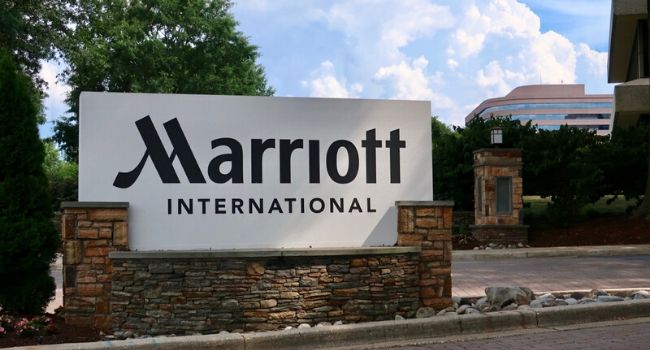
Marriott Discloses Second Security Breach, Affecting Millions, In Two Years
The hack took place through Marriott Bonvoy, the company's loyalty app, and affected up to 5.2 million guests.
- By Haley Samsel
- Apr 01, 2020
Disclosing its second major security breach in the past two years, the international hotel chain Marriott announced on Tuesday that a hacker had accessed data affecting up to 5.2 million guests who used Marriott Bonvoy, the company’s loyalty app.
Marriott said the hack first began in mid-February but company officials did not become aware until the end of February. A breach notification published on Marriott’s website details how a hacker used login credentials of two employees at a Marriott property to access customer information from the Bonvoy database.
“Upon discovery, we confirmed that the login credentials were disabled, immediately began an investigation, implemented heightened monitoring, and arranged resources to inform and assist guests,” the breach notification reads.
While the company investigation remains ongoing, Marriott has not found evidence that the hacker accessed account passwords, payment card information, passport information, national ID numbers or driver’s license numbers. The exposed information did include the following:
- Contact details (e.g., name, mailing address, email address, and phone number)
- Loyalty account information (e.g., account number and points balance, but not passwords)
- Additional personal details (e.g., company, gender, and birthday day and month)
- Partnerships and affiliations (e.g., linked airline loyalty programs and numbers)
- Preferences (e.g., stay/room preferences and language preference)
Not all of this information was entered for each guest, the company said. Guests involved in the breach were notified by Marriott on Tuesday, and the chain has also set up a self-service online portal for guests to identify if their information was involved in the breach. Affected individuals can also see what categories of information were part of the breach.
Paul Bischoff, a privacy advocate with the tech research and consumer website Comparitech, said that the biggest threat facing Marriott customers in the recent breach is “targeted phishing.”
“Guests should be on the lookout for targeted messages from scammers posing as Marriott or a related company,” Bischoff said. “Don't click on links or attachments in unsolicited emails. Check email addresses and don't just trust display names. If you're uncertain as to whether a message is legitimate or not, ask Marriott using contact information found through Google.”
Back in November 2018, Marriott also disclosed that hackers had accessed personal details of an estimated 500 million guests worldwide through the Starwood Hotels reservation system it had acquired. While the company has since lowered the total to 383 million, Marriott has faced penalties in the U.K. for lax cybersecurity practices. Chinese hackers are suspected in that case.
Andrew Hollister, the director of LogRhythm Labs, noted that there are some positives to draw from Marriott’s disclosure on Tuesday, particularly in the company’s response time to the breach.
“In the previous incident in 2018, Marriott detected signs of unauthorized activity going back four years,” Hollister said. “In this new case, the activity appears to have begun in January 2020 and been detected during the course of February 2020. This is a significant improvement in time to detect and respond to a data breach.”
He added: “This latest data breach just goes to show that continuing vigilance is required to keep reducing the time to detect and respond to threats, and that real reductions in impact can be made with focus on this issue which affects every company on the globe which holds personal information.”
About the Author
Haley Samsel is an Associate Content Editor for the Infrastructure Solutions Group at 1105 Media.